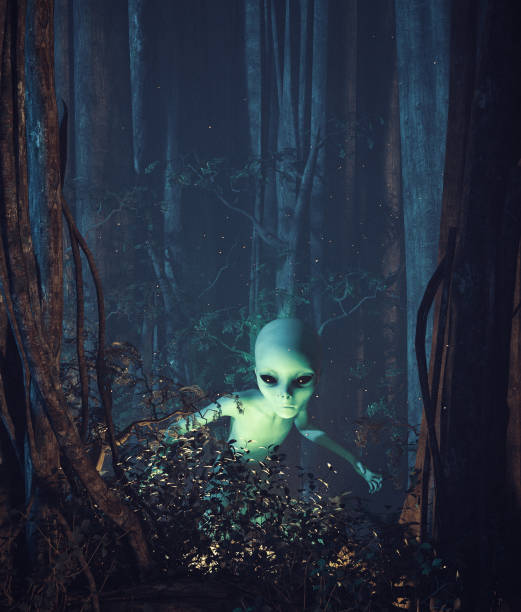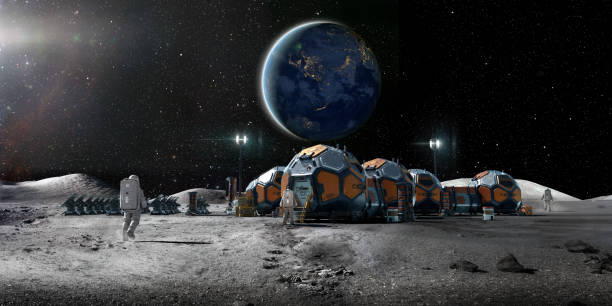For centuries, humanity has gazed at the night sky with wonder and trepidation. The stars, distant and unblinking, have inspired myths, religions, and philosophies. Among the most persistent questions has been whether we are alone in the universe. Across cultures, stories of strange visitors from the heavens—beings with otherworldly appearances and inexplicable powers—have captured the human imagination. In the modern era, this curiosity has evolved into scientific inquiry and speculation, giving rise to the tantalizing notion that extraterrestrial life might not only exist but could already be living among us in secret.
The idea is seductive. It appeals to our innate fascination with the unknown and to the possibility that life might transcend our planet in ways we have yet to comprehend. From a scientific standpoint, the discovery of life beyond Earth would be nothing short of revolutionary, altering our understanding of biology, evolution, and the very nature of consciousness. Yet, the question of whether aliens are present on Earth, hidden in plain sight, requires a careful balance between imagination and evidence—a balance that science strives to maintain.
The Scientific Basis for Alien Life
Before considering whether extraterrestrials are already among us, it is essential to understand why scientists believe alien life is plausible. The universe is vast beyond comprehension. Our galaxy alone, the Milky Way, contains an estimated 100 to 400 billion stars, many of which are orbited by planets in the so-called habitable zone—regions where temperatures allow for liquid water, an essential ingredient for life as we know it. Observations from the Kepler Space Telescope and other missions have revealed thousands of exoplanets, some remarkably Earth-like in size and composition.
Astrobiologists argue that given the sheer number of potentially habitable worlds, the emergence of life elsewhere is not merely possible; it is statistically probable. Life on Earth arose relatively quickly in geological terms, suggesting that the processes leading to biological complexity might occur elsewhere under favorable conditions. Furthermore, extremophiles—microorganisms thriving in environments once thought inhospitable—demonstrate that life can exist in a staggering variety of conditions, from deep-sea hydrothermal vents to acidic hot springs, expanding the potential habitability of distant worlds.
From a purely probabilistic standpoint, therefore, the existence of extraterrestrial life is far from speculative. The question that naturally follows is whether any of this life has developed intelligence and technology capable of reaching or influencing our planet.
The Challenge of Detection
The idea of intelligent aliens living secretly among us confronts a fundamental problem: evidence. Despite decades of research, including the Search for Extraterrestrial Intelligence (SETI) and the observation of unusual astronomical phenomena, no definitive proof has been found that intelligent extraterrestrials have visited Earth. Signals from space have been detected, such as the enigmatic “Wow! signal” in 1977, yet none have been repeated or verified. The lack of direct evidence does not, however, rule out the possibility entirely; it raises questions about the methods and assumptions underlying our search.
One scientific argument against the notion of aliens already living on Earth is the Fermi Paradox. First posed by physicist Enrico Fermi, the paradox points out the contradiction between the high probability of extraterrestrial civilizations and the absence of observable evidence for their existence. If intelligent life is common and technologically advanced civilizations are capable of interstellar travel, why have we not encountered any signs?
Proponents of the hypothesis that aliens might already be present argue that advanced civilizations could deliberately conceal themselves, either due to ethical considerations or as part of a strategy to observe humanity without interference. This concept, known in speculative science as the “zoo hypothesis,” posits that Earth is effectively a cosmic wildlife preserve, monitored by extraterrestrials who remain invisible to prevent disruption of our natural development. While purely theoretical, such scenarios cannot be categorically dismissed given the limits of our observational capacities.
Historical Accounts and Cultural Impressions
Stories of mysterious beings living among humans are woven into folklore, mythology, and religious texts across the world. From the Djinn of Arabian tradition to the European legends of fairies, these narratives often describe entities with abilities beyond human understanding, capable of invisibility, shape-shifting, or rapid movement. Anthropologists caution that while these tales do not constitute scientific proof, they reflect a long-standing human awareness—or fear—of otherworldly presence.
In the twentieth century, UFO sightings and reports of alien encounters gained prominence, especially in the United States. Individuals claimed to see craft of unknown origin, sometimes accompanied by beings described as humanoid yet distinctly different. Government investigations, such as Project Blue Book, examined thousands of cases, most of which were attributed to natural phenomena, human error, or misidentification. A small fraction, however, remained unexplained, fueling speculation that some encounters might involve extraterrestrial visitors.
Skeptics argue that human perception is prone to error and that cultural influences—movies, media, and collective imagination—have shaped our interpretation of unusual events. Psychological studies show that the brain can misinterpret ambiguous stimuli, creating convincing experiences of sightings and encounters. Yet the persistence of these reports, often from credible witnesses including pilots, astronauts, and military personnel, keeps the debate alive.
Biological and Technological Plausibility
The possibility that extraterrestrials could live among us hinges not only on their desire but also on their ability. From a biological perspective, aliens capable of integrating into human society would require advanced adaptability. Their physiology might need to mimic humans closely enough to avoid detection, or they could employ technology to disguise their presence, including sophisticated cloaking mechanisms or neural interfaces that manipulate perception.
Advances in biotechnology, nanotechnology, and artificial intelligence on Earth suggest that concealing presence is not beyond the realm of possibility for an advanced civilization. Just as humans are developing techniques for invisibility, synthetic biology, and cognitive manipulation, extraterrestrials could have mastered methods far beyond our comprehension. In such a scenario, conventional detection methods—sight, sound, or chemical analysis—would be insufficient, leaving us blind to their existence.
Critics counter that while this scenario is theoretically possible, it is speculative. Extraordinary claims require extraordinary evidence, and no confirmed biological, chemical, or technological signatures have been found on Earth indicating alien presence. Furthermore, evolutionary and ecological constraints may make it difficult for extraterrestrials to survive unnoticed over long periods without altering their environment in detectable ways.
Psychological and Sociological Dimensions
The human fascination with hidden aliens is not merely a matter of biology or physics; it is deeply psychological. The notion that beings of superior intelligence might walk among us touches profound anxieties and aspirations. It raises questions about identity, power, and our place in the universe. Belief in secret extraterrestrial presence often correlates with broader cultural and societal phenomena, including distrust of authority, fascination with conspiracies, and the desire for transcendence.
Sociologically, the idea serves multiple functions. It challenges conventional narratives, forcing people to imagine alternatives to the human-centered view of reality. It also fosters community and shared identity among those who feel alienated from mainstream explanations. The psychological appeal lies in the mystery itself: the possibility that the universe contains hidden actors and secret knowledge beyond ordinary perception.
Evidence and Controversy
Despite decades of speculation, there is no verified evidence that aliens live secretly on Earth. Investigations into purported abduction cases, crop circles, and anomalous artifacts have produced interesting stories but no scientifically corroborated proof. Mainstream science maintains that while extraterrestrial life may exist elsewhere, claims of hidden aliens on Earth remain within the domain of anecdote and conjecture.
However, scientists continue to explore indirect methods of detection. Astrobiology, exoplanet research, and SETI provide frameworks for understanding how intelligent life could emerge and interact with its environment. These studies also allow us to consider what forms alien life might take—silicon-based, energy-based, or hybrid systems—broadening the scope of what “living among us” might entail.
Some physicists and engineers propose that extraterrestrial technology could operate at levels of sophistication beyond human comprehension, using principles we have not yet discovered. In such a case, the absence of evidence is not evidence of absence; it merely reflects the limits of our current understanding and tools.
Philosophical Implications
If extraterrestrials were living among us, the implications would be profound. It would challenge fundamental assumptions about human uniqueness, morality, and the trajectory of civilization. It could force a reevaluation of history, culture, and even consciousness itself, as we grapple with the presence of beings whose perspective and knowledge far exceed our own.
Ethical considerations would also arise. Should we attempt to contact or expose them? Would interference violate some cosmic code? These questions intersect with the philosophical debates surrounding artificial intelligence and the stewardship of advanced technology, illustrating that the presence of aliens, even hypothetically, raises profound moral and existential dilemmas.
The Continuing Search
The scientific quest to understand our place in the universe continues unabated. Instruments such as the James Webb Space Telescope, planetary probes, and radio telescopes expand the boundaries of our observation. The search for microbial life on Mars, the icy moons of Jupiter and Saturn, and distant exoplanets may one day provide the first incontrovertible evidence of extraterrestrial life.
Meanwhile, the question of secret alien presence on Earth remains unresolved, hovering at the intersection of science, speculation, and imagination. While rigorous scientific standards demand evidence, the very act of questioning opens the mind to possibilities that challenge conventional paradigms. In this sense, the search is as much philosophical as it is empirical, reflecting humanity’s enduring curiosity and desire to connect with the cosmos.
Conclusion: Mystery as Motivation
The notion that aliens might already live among us in secret is an idea that bridges science, imagination, and culture. While no definitive proof exists, the question itself inspires exploration, critical thinking, and reflection on the nature of life, intelligence, and existence. It reminds us that the universe is vast and mysterious, and that the limits of our perception may conceal truths far stranger than we dare to imagine.
Even in the absence of direct evidence, contemplating extraterrestrial life encourages humility and wonder. It forces us to confront the possibility that our understanding of reality is incomplete, that intelligence may take forms unimaginable, and that the cosmos may harbor companions whose presence challenges our conception of normalcy.
Whether or not aliens are secretly among us, the idea continues to captivate and provoke, serving as a lens through which we explore the unknown, question our assumptions, and strive to understand our place in the grand tapestry of existence. In that sense, the search is itself a journey—scientific, philosophical, and profoundly human.






